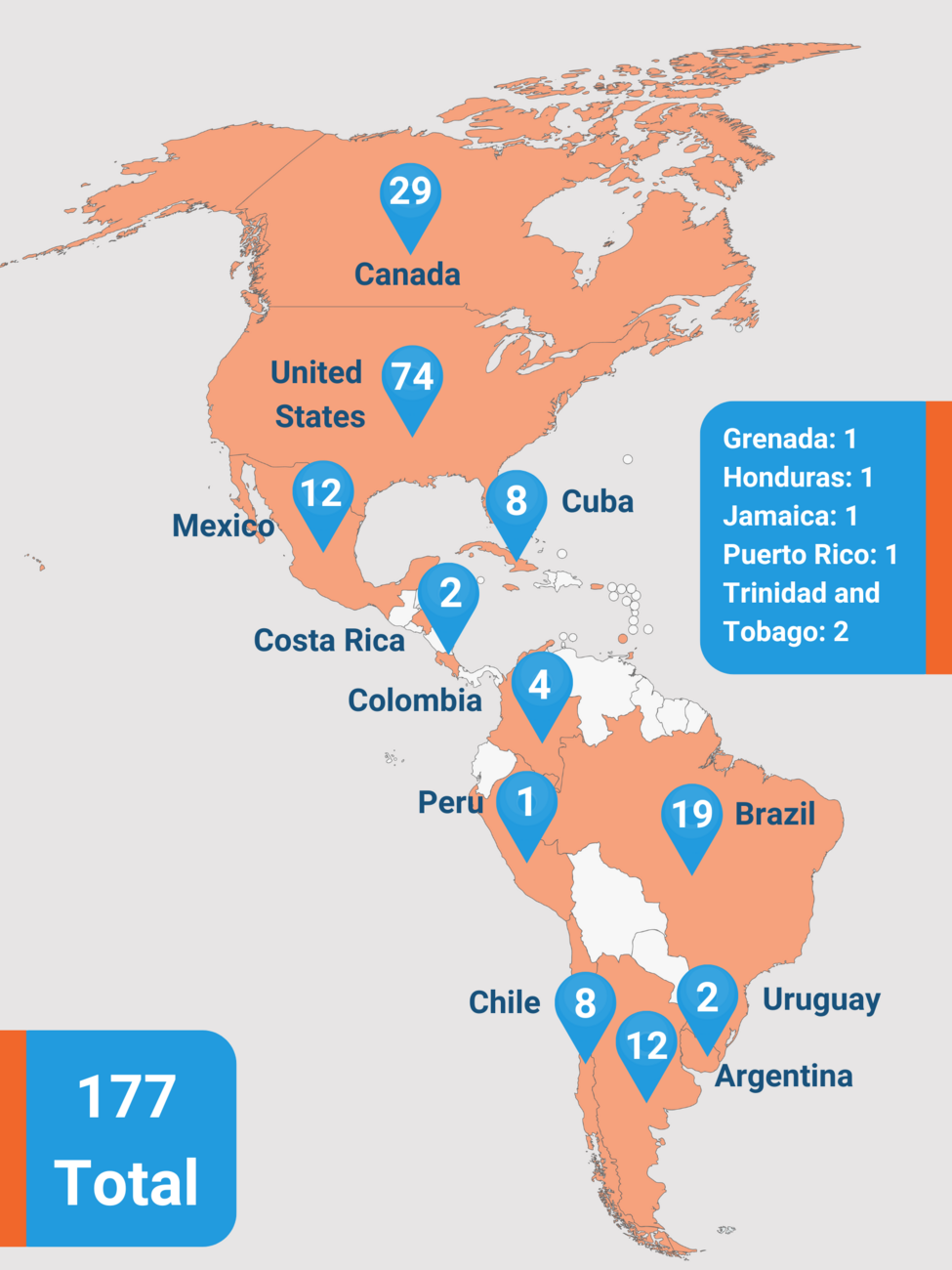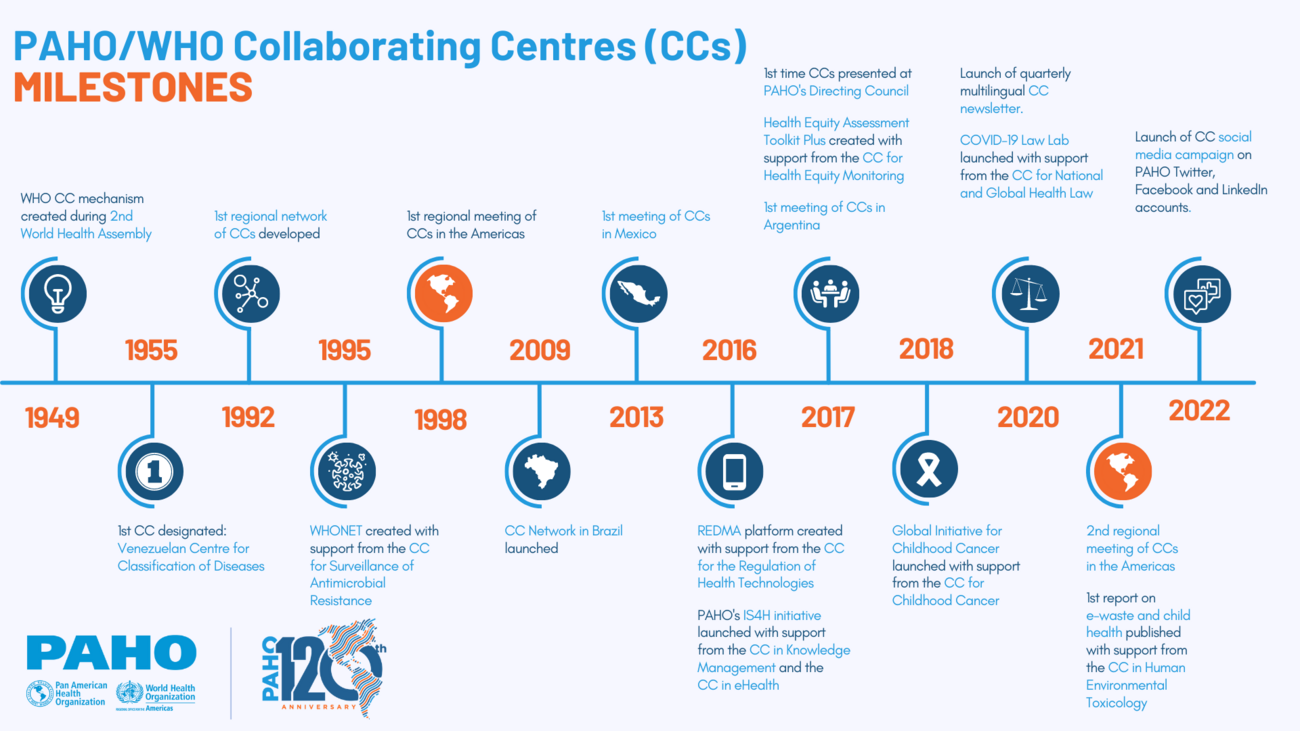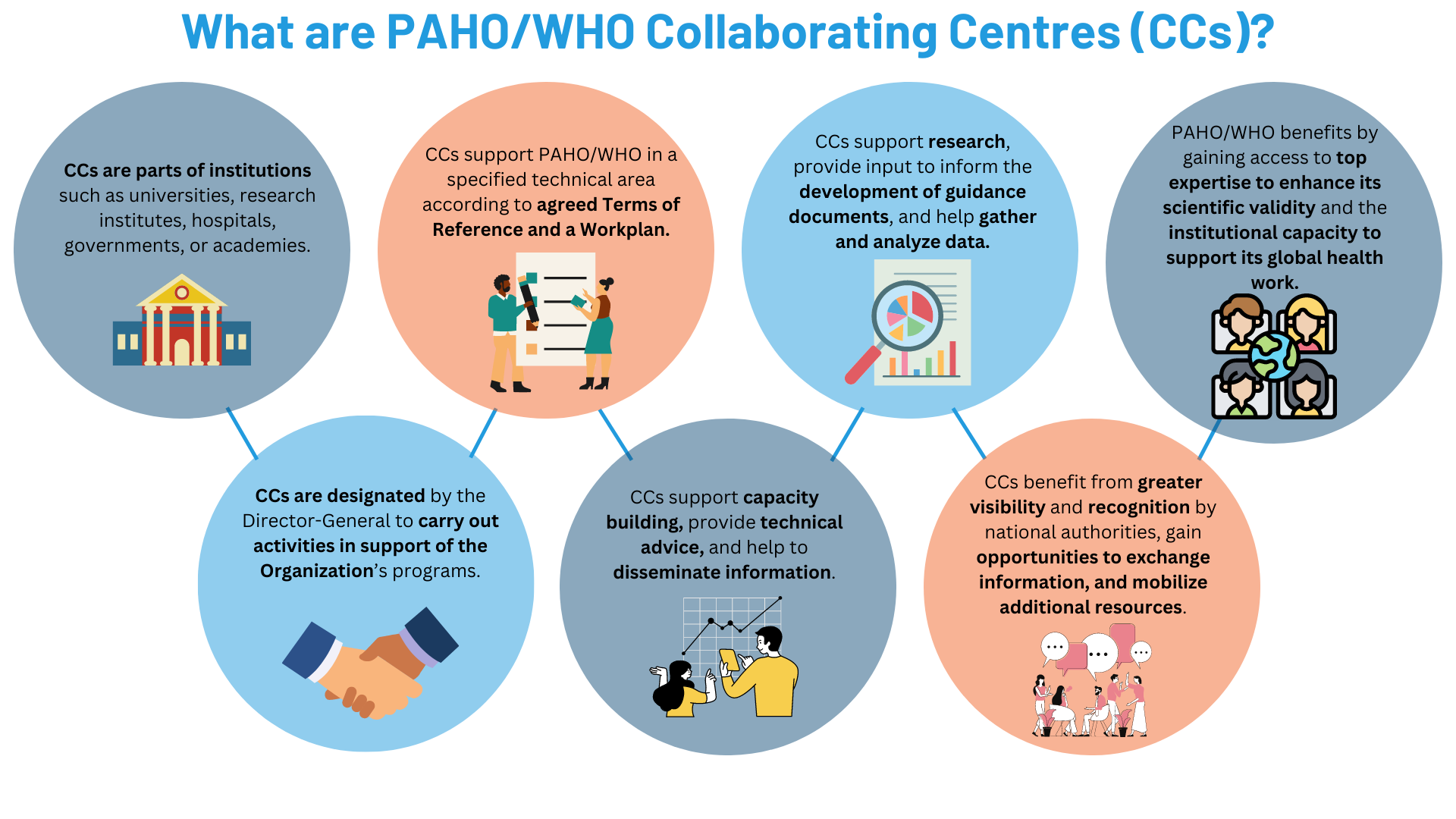WHO Collaborating Centres (CCs) are institutions such as universities, laboratories, research institutes, hospitals, ministries, or national academies which are designated by the Director-General to carry out activities in support of the Organization’s programs.
Each PAHO/WHO CC* cooperates with a specified technical area, according to terms of reference to carry out research, assisting in the development of PAHO/WHO guidelines, gathering and analyzing data, disseminating information, conducting training courses, or providing technical input to the Organization.
Institutions are identified by PAHO/WHO personnel based on the eligibility criteria listed below. They do not “apply” to become CCs. After at least two successful years of joint work, PAHO/WHO staff will propose the designation of the part of the institution they have been working with.
*All WHO CCs located in the Region of the Americas are known as Pan American Health Organization/World Health Organization Collaborating Centres (PAHO/WHO CCs) since PAHO serves as a WHO Regional Office.
Formally established institutions that may be eligible for designation include parts of universities, research institutes, hospitals or academies. Parts of governments may also be eligible for designation. A designation is normally limited to the specific department, division, laboratory, unit or other part that collaborates with WHO. Eligible institutions can be public or private but should not be of a commercial or profit-making nature. Two or more separate institutions or separate branches of one institution in different locations cannot share a single designation as a WHO CC.
To be considered for designation as a WHO CC, eligible institutions must fulfill all of the following criteria:
1. High scientific and technical standing at national and international levels;
2. Prominent place in the country's health, scientific or educational structures;
3. High quality of scientific and technical leadership, and sufficient number of staff with high-level qualifications;
4. Stability in terms of personnel, activity and funding;
5. Strong working relationship with other institutions in the country, and at intercountry, regional and global levels;
6. Clear ability, capacity and readiness to contribute, both individually and within networks, to PAHO/WHO program activities, whether in support of country programs or through participation in international cooperative activities;
7. Clear technical and geographical relevance of both the institution and its activities to PAHO/WHO's program priorities;
8. At least two years of previous collaboration with PAHO/WHO in carrying out jointly planned activities.
Institutions that are not eligible for designation include international intergovernmental organizations, international and national nongovernmental organizations and similar bodies with a membership structure, including professional associations or foundations that raise resources for health development activities, as well as networks, working groups, partnerships or programs.
Functions of Collaborating Centres include the following:
- collection, collation and dissemination of information;
- standardization of terminology and nomenclature of technology, of diagnostic, therapeutic and prophylactic substances, and of methods and procedures;
- development of evidence-based technical guidance tools and resource materials on various topics;
- development and application of appropriate technology;
- provision of reference substances and other services;
- participation in collaborative research developed under WHO's leadership, including the planning, conduct, monitoring and evaluation of research, evaluation of WHO interventions in countries, as well as promotion of the application of the results of research;
- training, including research training;
- coordination of activities carried out by several institutions on a given subject;
- capacity-building work at country level; and
- provision of monitoring, preparedness and response services to deal with disease outbreaks and public health emergencies.
The WHO Collaborating Centres Database is the official source of information about the WHO collaborating centres worldwide.
Please check the WHO Collaborating Centres Global Database for an up-to-date regional and global distribution of Collaborating Centres.


If you would like more information about PAHO/WHO CCs contact us directly at pahowhocc@paho.org.

